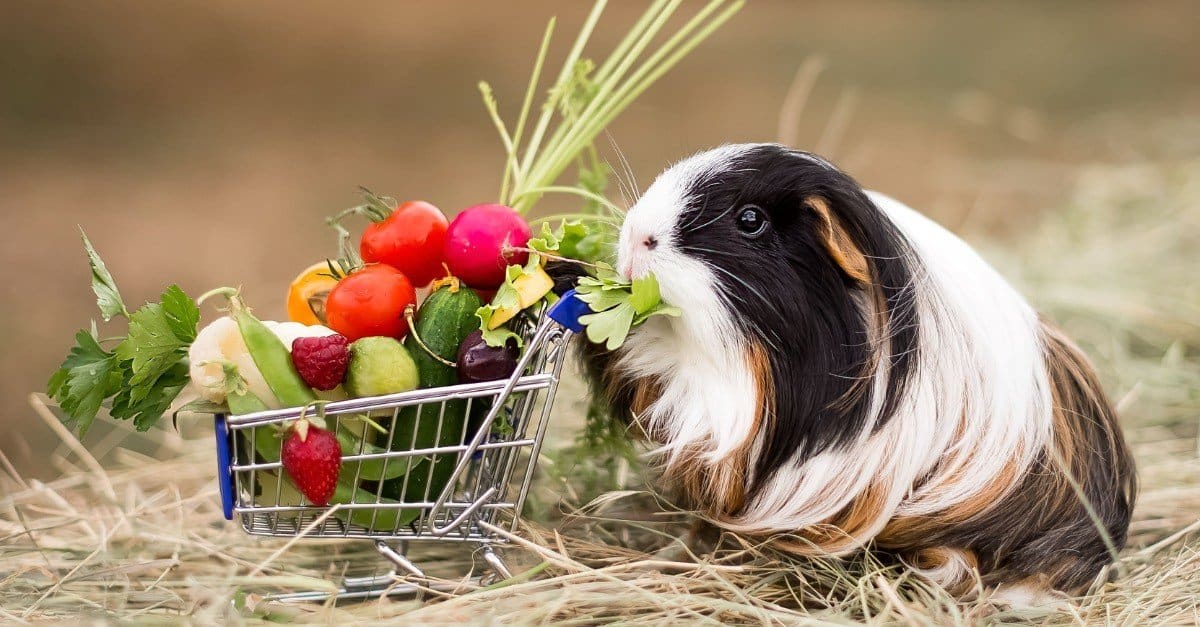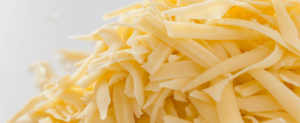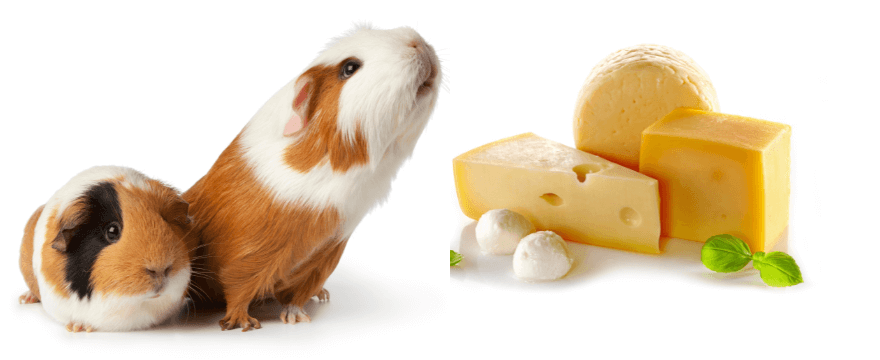Have you ever enjoyed a tasty piece of cheese, only to look at your furry friend with those cute, curious eyes, pondering, “Can guinea pigs eat cheese?” Imagine enjoying a corny movie night with your guinea pig curled up by your side. Out of nowhere, your small friend shows interest in your snack and perks up. Before offering a nibble, it’s essential to determine if cheese is a safe treat for your guinea pig.
Dietary Requirements of Guinea Pigs

Guinea pigs primarily eat hay, fresh vegetables, and pellets designed for their dietary needs. These cute little creatures have special dietary requirements, such as a high-fiber diet to promote their digestive health and dental hygiene.
Understanding Guinea Pig Nutrition
Before we explore the cheesy dilemma, let’s first grasp the basic dietary needs of guinea pigs. These adorable animals do best with a diet that includes hay, fresh vegetables, and pellets designed to meet their nutritional requirements. These animals have finely tuned digestive systems designed to process plant-based foods, making them strict herbivores.
Nutritional Content of Cheese
Despite the nutritional concerns linked to cheese, some people may be curious about any potential benefits for guinea pigs. Although cheese is a good source of calcium and protein, exploring other options that align more closely with their dietary needs is important.
Potential Benefits of Cheese for Guinea Pigs
Despite the nutritional concerns linked to cheese, some people may be curious about any potential benefits for guinea pigs. Although cheese can offer calcium and protein, it’s important to explore other sources of these nutrients that align with their dietary needs.
Why Cheese is a No-Go for Guinea Pigs
Although there are some potential benefits, cheese can also pose several risks to your guinea pig’s health:
- Lack of digestive enzymes: Guinea pigs, like most mammals except humans, do not have the enzyme lactase required to digest lactose. Eating cheese may cause diarrhea, bloating, and stomach discomfort.
- Potential health risks: These digestive problems may lead to dehydration, discomfort, and potential malnutrition if cheese is consistently included in their diet.
- Nutritional imbalance: Cheese has a high-fat content and lacks fiber, which can upset the balance required for their herbivorous digestive system. This imbalance may result in digestive problems and weight issues over time.
Although guinea pigs should not eat cheese, there are plenty of other delicious and enriching treats they can enjoy! Remember that their natural diet of hay, fresh vegetables, and specialized pellets gives them all the essential nutrients they require to stay healthy.
Keep your guinea pig’s well-being your top priority as a pet owner. By understanding their nutritional requirements and making well-informed decisions, you can guarantee your cherished companion a lifetime of joy and well-being.

Leave a Reply